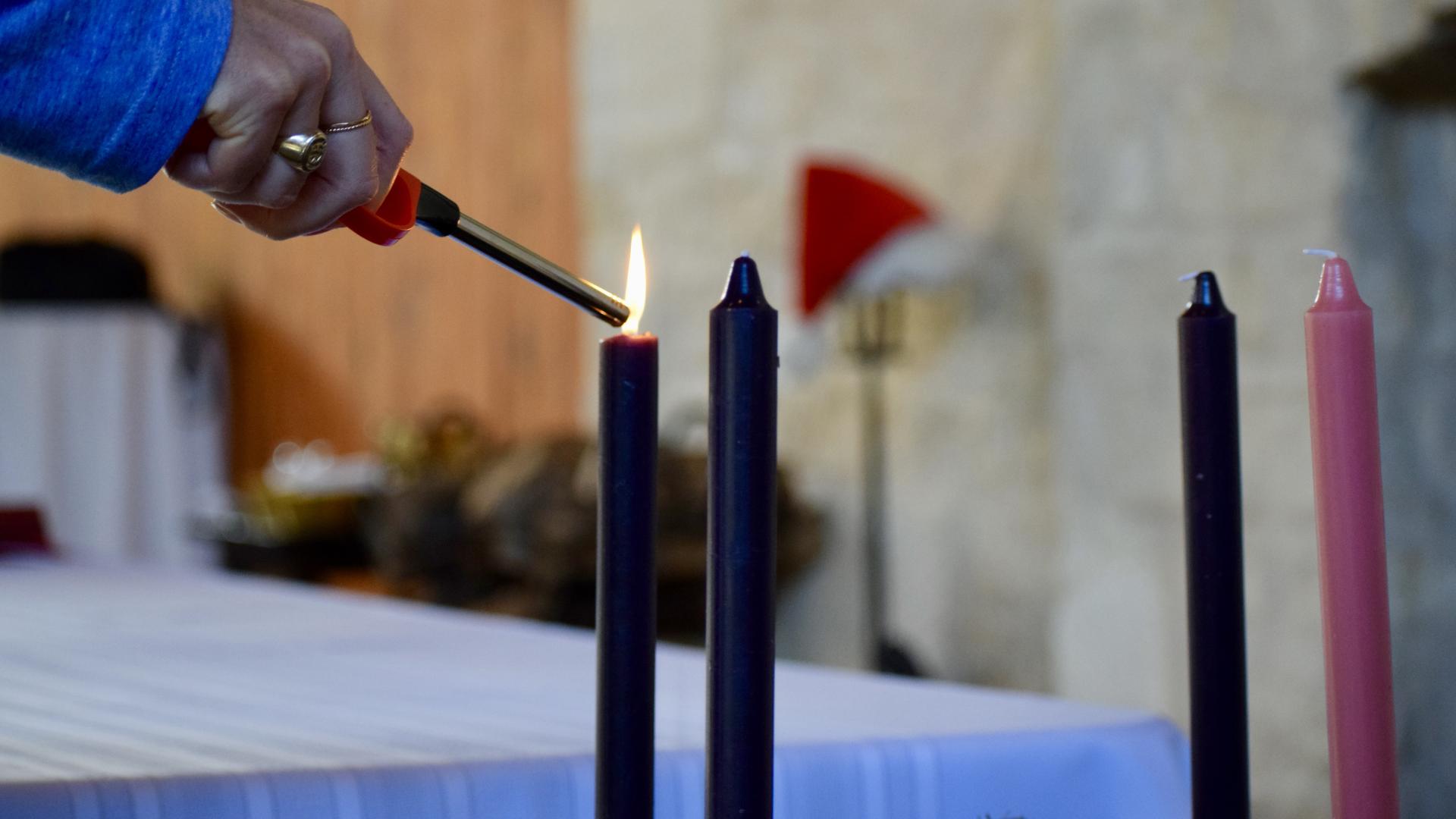I have always appreciated the liturgical seasons of the Catholic Church, and have found that the same feast days, solemnities, and celebrations the calendar hits on each and every year continue to ring out new truths each time we live through them. The season of Advent has always been a favorite: the built-in countdown of the Advent wreath, the royal purple that drapes altar cloths, the militant insistence of keeping Christmas music unplayed until the first day of the Season. But with all of these exterior signs of joyful anticipation, I am reflecting that I did not quite set up my students to live out this season of preparing their hearts for Christmas. Instead, their weeks of Advent were full of final unit tests, long review sessions (likely accompanied by intense bouts of cramming), and 90 minute midterms. For context, I am writing this having put my last exam in the gradebook, so with the benefit of hindsight, this might be easier to say now than it was when I was living the reality of teaching. And there's no way around it - the end of the semester necessitates all of the things I mentioned above. We need final assessments, and they need to be done before break, which of course will always be just before Christmas.
But I can't help but wonder if there could have been a way to - at least for moments in my class - build in opportunities to prepare ourselves for all that is to come, not just the Christmas season, but also the two week period where neither my students nor I will have the same schedule we have been accustomed to over the last four months. Beyond just putting on classy Christmas music as they worked through review problems, what more could I have done to help enter into the season of Advent? Questions as simple as "What are you going to do with all your new free time?" or "Do you have any big plans for Christmas break?" serve as opportunities to connect with students and gain a better picture of what their celebrations look like in particular. And when one student told me that his only plans for break were to rank up in Fortnite, we were able to enter into a good conversations on the difference between "well wasted time" and "poorly wasted time" (whether or not ranking up in Fortnite is well wasted or poorly wasted is up to you). The countless Advent devotionals, too, could have served my class well as a different way to start each day, one extra exterior sign of the new season the Church has entered into, and by extension the attitude we should begin to take on interiorly. As we move ahead on the brink of Christmas, I hope to return to school with a plan to live out these seasons of the Church not just at Mass or in personal prayer, but in my classroom as well.
"May we who faithfully await the feast of the Lord's Nativity be enabled to attain the joys of so great a salvation, and to celebrate them always with solemn worship and glad rejoicing." - Collect of the Third Sunday of Advent
 Alliance for Catholic Education
Alliance for Catholic Education
